
views
X
Research source
Anyone can suffer from low testosterone. If you believe this might be a problem for you, there are ways you can tell if have low testosterone.
- If you were assigned male at birth, low testosterone may cause you to have a decreased libido, trouble getting or maintaining an erection, or decreased sperm counts.
- You might also notice physical changes, like smaller testicles, swollen breasts, hot flashes, and a decrease in muscle mass.
- If you were assigned female at birth and you have low testosterone, you might notice a decreased sex drive, muscle weakness, decreased vaginal lubrication during sex, or even infertility.
- There are a lot of factors that can lead to low testosterone levels, including your age, weight, and certain conditions like high blood pressure or alcoholism.
- If you think you have low testosterone, have your levels checked by your doctor, then talk about your treatment options.
Determining If You Have Low Testosterone Levels

Watch for lowered sex drives. It is quite normal to have fewer erections as a person ages. It is not normal, however, to be unable to have or sustain an erection, and it is not normal to lose interest in sex. Lowered testosterone levels can cause sex-related symptoms, such as: Decreased sex drive (libido) and other sexually related problems: Erectile dysfunction (ED) A decrease in the number and quality of erections. Decreased sperm counts and possible infertility
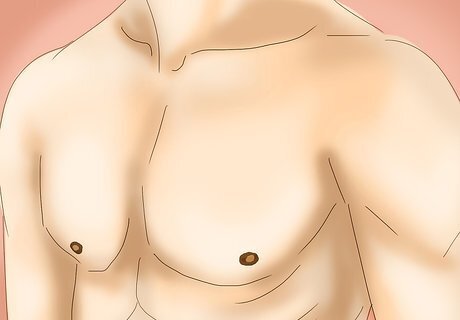
Look for changes in your body. It is quite normal for a person's testosterone level to decrease gradually with age, but you should not see many abnormal changes in your body. Lower testosterone in people assigned male at birth can cause smaller testicles and swollen or tender breasts. In adolescents or young adults who haven't completed male puberty yet, having low testosterone may cause them to appear younger than their chronological age. These adolescents/young adults may also be void of body or facial hair. People with lower levels may also experience hot flashes. They may also experience a decrease in muscle mass leading to decreased strength and endurance, along with osteopenia (softening of the bones) and osteoporosis (decreased bone density). They may also experience changes in blood lipids, such as cholesterol levels.

Check for behavioral changes. People who experience low testosterone levels may experience some changes to their behavior. They may feel fatigue, difficulty sleeping, or a change in sleep patterns. Mood changes can also occur, like depression, irritability, and anxiety. Men may also suffer from problems with memory, concentration, or a sudden lack of self-confidence. Transgender people assigned male at birth may suffer from memory and concentration issues, but they are likely to have a sudden 'boost' of self-confidence.

Monitor symptoms of low testosterone in females. Symptoms in people assigned female at birth most commonly occur around menopause and can complicate any treatment of menopausal symptoms. Symptoms of female testosterone deficiency include: Decreased sexual desire and function Muscle weakness Decreased vaginal lubrication Infertility
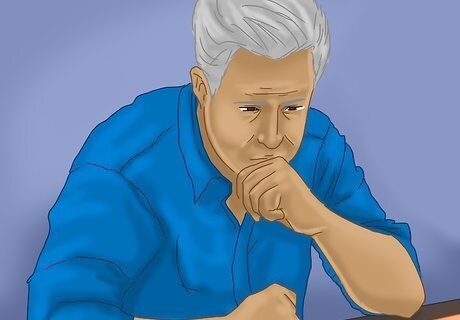
Understand how aging influences testosterone levels. Testosterone levels normally decrease with age. In people assigned male at birth, testosterone levels decrease about 1% each year after the age of 30. People assigned female at birth who are over 40 years old may have half the testosterone they did in their 20s. These lower levels are normal, however, and may not point to a problem. However, testosterone levels may drop significantly with age. Approximately 40% of cisgender men over the age of 45 have low testosterone. Watch for symptoms or discuss with your doctor if your testosterone levels are decreasing normally or if you are at risk for low levels.
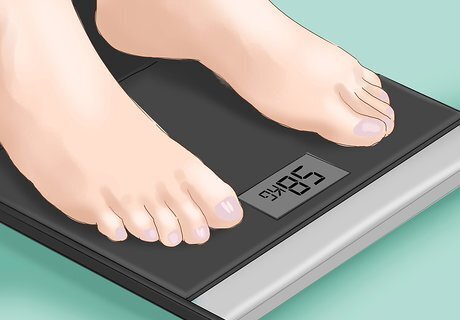
Monitor your symptoms if you are overweight. Low-level production of testosterone can be due to a problem with the pituitary or hypothalamus glands. Obesity and type 2 diabetes may put you at risk for low testosterone in connection with these glands.

Decide if you have any of the conditions that lead to low testosterone levels. Low testosterone levels can be caused by a variety of the conditions. Some of the common conditions include: Injury to the testicles Alcoholism Medication side effects Testicular cancer or the treatments for testicular cancer High blood pressure or cholesterol Other hormonal disorders Infections, such as HIV/AIDS Chronic liver or kidney disease Type 2 diabetes Obstructive sleep apnea Chronic opiate medication use
Handling Low Testosterone Levels
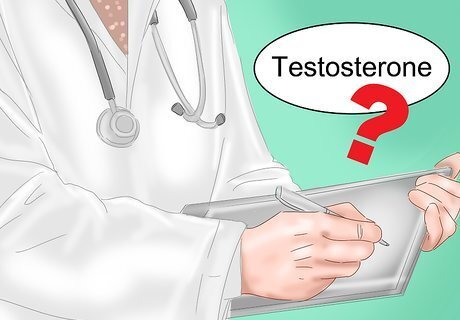
See your physician. People can have primary low testosterone or low testosterone due to a secondary condition. In order to tell whether you have low testosterone or a secondary condition, you need to see your doctor. Remember to tell your physician about all your medical history, and especially all your medications since low testosterone can be due to medications.
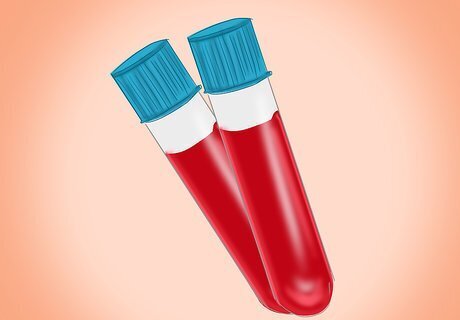
Get a blood test to check your testosterone levels. Diagnosis involves primarily a blood test along with a physical exam. The test is most often done using blood drawn in the morning, when testosterone levels are highest. If the combination of symptoms you tell the doctor about and the lab results indicate low testosterone levels, you may be diagnosed with low testosterone levels. Depending on your physical exam, your symptoms, and your history, other tests for thyroid function, diabetes, high blood pressure, and heart disease may be performed as well. Since testosterone levels can fluctuate, check 2–3 times in the morning to truly confirm if you have low testosterone levels.
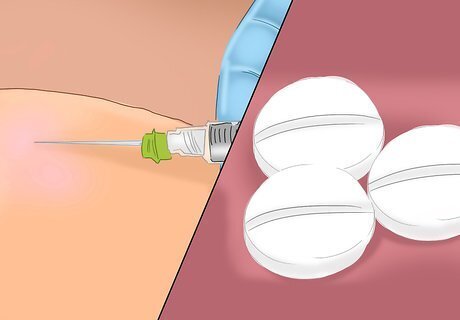
Decide on a treatment. If you have low testosterone levels, you may be able to get testosterone therapy. Testosterone replacement therapy may be done through an applied gel on the skin or patch. You can also get an injection or tablets that dissolve in your mouth.
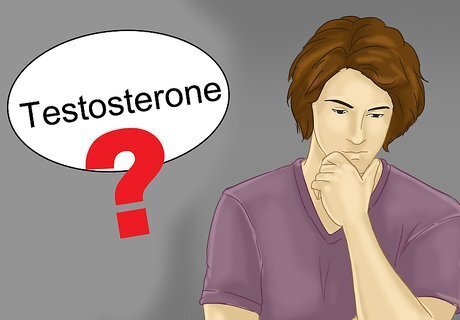
Know the importance of testosterone. Testosterone is responsible for the production of the primary male sexual characteristics and functions, including a deep voice, facial hair, a prominent Adam’s apple, and denser bone and muscle mass. For people assigned female at birth, testosterone is also directly related to erectile functions, penis and testicular size, and sex drive. Testosterone is also involved with the production of red blood cells and sperm and can decrease as a person ages. In people assigned female at birth, testosterone is also important for muscle and bone development, sex drive, and regulation of body organs. Testosterone levels vary in different people, so it can be difficult to determine if the levels detected in one person are too low.











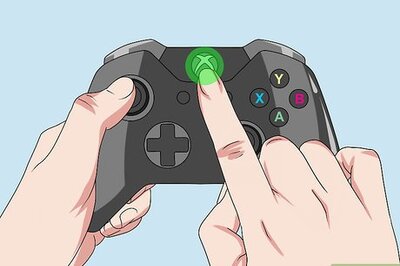


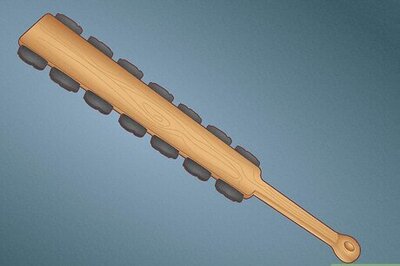

Comments
0 comment